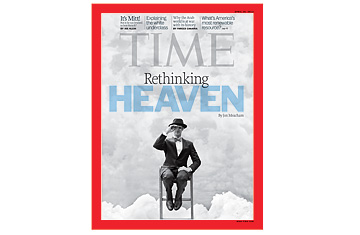
(3 of 6)
Platonic assertions that the soul was immortal but the body temporal put pagan philosophy in conflict with evolving Jewish ideas of resurrection. Many 1st century Jews were awaiting the coming of the kingdom of God (sometimes called the kingdom of heaven), which was to be brought about by a Davidic messiah who would inaugurate a new age of justice for Israel and a general resurrection of the dead. The early Christians--who were, of course, Jews trying to work out the meaning of their experience of Jesus--were more Jewish than Platonic. The story of Jesus as interpreted by Paul and as told in the Gospels created a unique understanding of salvation and life after death. No one in 1st century Judaism had been looking for a human atoning sacrifice.
Yet there the disciples were on that first Easter, trying to make sense of a crucified king and an empty tomb. As they recalled the words of Jesus in his lifetime--words they had not understood at the time--early Christians started to work out a powerful new vision of human destiny. Those who believed in Jesus were to be saved, which did not mean a glorious eternity in an ethereal region. It meant, instead, a two-step process. First, when a believer died, his body was left behind and his soul went to a place of rest in preparation for the second phase: a bodily resurrection into "new heavens and a new earth"--not simply a heaven.
Jesus was to return, probably imminently, to set the world to rights. "When 1st century Jews spoke about eternal life, they weren't thinking of going to heaven in the way we normally imagine it," explains Wright, the New Testament expert, who is now at the University of St. Andrews. "Eternal life meant the age to come, the time when God would bring heaven and earth together, the time when God's kingdom would come and his will would be done on earth as in heaven."
After Jesus failed to inaugurate the new kingdom in the lifetimes of the disciples and early apostles, subsequent generations of Christians--now two millennia's worth--were left to speculate about the nature of life after death. And the further believers have moved in time from the New Testament era, the further many Christians have moved from New Testament understandings about heaven. The power of poets and artists, of Dante and Michelangelo, created indelible images; the fiery story of Revelation, though problematic and highly metaphorical, has long been taken too literally. (A book on the subject by Elaine Pagels, Revelations: Visions, Prophecy, and Politics in the Book of Revelation, has just reached the best-seller list.) What's been truly left behind is what Jesus and his contemporaries were likely talking about when they talked about heaven.
Heaven in America, Then and Now
